John Pilger - A Secret Country
Here you can read online John Pilger - A Secret Country full text of the book (entire story) in english for free. Download pdf and epub, get meaning, cover and reviews about this ebook. year: 1992, publisher: Vintage, genre: Science / Politics. Description of the work, (preface) as well as reviews are available. Best literature library LitArk.com created for fans of good reading and offers a wide selection of genres:
Romance novel
Science fiction
Adventure
Detective
Science
History
Home and family
Prose
Art
Politics
Computer
Non-fiction
Religion
Business
Children
Humor
Choose a favorite category and find really read worthwhile books. Enjoy immersion in the world of imagination, feel the emotions of the characters or learn something new for yourself, make an fascinating discovery.
- Book:A Secret Country
- Author:
- Publisher:Vintage
- Genre:
- Year:1992
- Rating:4 / 5
- Favourites:Add to favourites
- Your mark:
- 80
- 1
- 2
- 3
- 4
- 5
A Secret Country: summary, description and annotation
We offer to read an annotation, description, summary or preface (depends on what the author of the book "A Secret Country" wrote himself). If you haven't found the necessary information about the book — write in the comments, we will try to find it.
A Secret Country — read online for free the complete book (whole text) full work
Below is the text of the book, divided by pages. System saving the place of the last page read, allows you to conveniently read the book "A Secret Country" online for free, without having to search again every time where you left off. Put a bookmark, and you can go to the page where you finished reading at any time.
Font size:
Interval:
Bookmark:
C ONTENTS
Expatriate journalist and film-maker John Pilger writes about his homeland with life-long affection and a passionately critical eye. In this fully updated edition of A Secret Country, he pays tribute to a little known Australia and tells a story of high political drama.
John Pilger grew up in Sydney, Australia. He has been a war correspondent, author and film-maker. He has twice won British journalisms highest award, that of Journalist of the Year, for his work all over the world, notably in Vietnam and Cambodia. Among a number of other awards, he has been International Reporter of the Year and winner of the United Nations Association Media Peace Prize. For his broadcasting, he has won Frances Reporter sans Frontires, an American television Academy Award, an Emmy, and the Richard Dimbleby Award, given by the British Academy of Film and Television Arts. He lives in London.

The Last Day
Aftermath: The Struggle of Cambodia and Vietnam (with Anthony Barnett)
The Outsiders (with Michael Coren)
Heroes
Distant Voices
Hidden Agendas
. Aboriginal fathers and sons who fought in the Second World War
. Eddie Murray, who was killed in police custody, Wee Waa, 1981
. Aboriginal artist, Albert Namatjira
. Joyce Hall, Northern Territory, 1982
. Alice Springs, 1987
. Freda Glynn, Chairperson of Imparja Television
. Clara Inkamala explains how to catch and cook a goanna
. Denis OHoy in Bendigo, 1946; and in 1987
. Maria and Carlo Calcagnos wedding, Sicily, 1954
. The Calcagnos in Sydney, 1955
. The Atlas football team, Sydney, 1940
. Tom Stratton, with Greek New Australians, Athens, 1958
. The authors parents: Elsie Pilger ne Marheine in 1907; Claude Pilger in 1947
. Valentina Makeev and her pet kangaroo, Snowy Mountains, 1940s
. The Basher Gang used by the New South Wales Government in the 1930s to break the coal-miners strikes
. The miners last stand at Rothbury colliery, 1929
. Robert Menzies when he was Prime Minister
. A symbol of all that remains at the Maralinga test site, 1987
. Vietnam veterans welcome home parade, Sydney, 1987
. Harold Holt welcomes President Lyndon Johnson to Australia, 1966
. Brian Day in the late 1950s; and with fellow Vietnam veteran and Agent Orange victim Barry Wright, Blue Mountains, 1987
. Christopher Boyce, who described CIA operations in Australia
. The Governor-General of Australia, Sir John Kerr, who dismissed the Whitlam Government in 1975
. Alan Bond with Neville Wran; Bondy with Bob Hawke; Hawke with Kerry Packer
. Sir Peter Abeles
. Tom Domican
. Paul Keating
. Rupert Murdoch
. How the Rich Live
. Mates. George Shultz and Bob Hawke, 1987
. The top-secret American base at Nurrungar, South Australia
. Jack Platt, the Bondi Beach shark catcher, 1952
. The Sunbaker
. Bronte Beach, Sydney, 1985
. Thelma Thompson, nurse, Broken Hill, 1920
. Harry King, wheat farmer, Mollerin, 1987
. Working at home on poverty rates, Melbourne, 1987
. Kings Cross, Sydney, 1986
. The new suburbia, western Sydney, 1987
. John Pilger with the parrot that wont drink Bondys XXXX beer
. John and Sam Pilger, Ayers Rock, 1987
The John Pilger version
The Dead Heart
The Compact
Francis McCarthy and Mary Palmers petition to the Governor of New South Wales
Repelling the Asiatic Hordes
A typical caricature of the yellow peril
The Melbourne Age, February 23, 1988
But... thats what friends are for...
No one could be more Australian than I...
There I was innocently driving home...
Whaddawewant

To the memory of my great-great grandparents, Francis
McCarthy and Mary Palmer, who came to Australia in
chains, and to the Aboriginal people who fought back.
AS A YOUNG reporter on the Sydney Daily Telegraph, assigned to cover the wharves and the airport, I was obliged to ask visiting celebrities what they thought of Australia. Although they might have seen only those unique Australian officials who spray arriving passengers with disinfectant, they were expected to play a game and make a statement affirming all that was good and sublime about Godzone. Exhausted by a seemingly endless journey, and broiling or shivering in the corrugated iron sheds that stood at the nations gates, they were prompted about the delights of our beer, beaches and way of life. Compliance ensured them generous space in the next days papers; resistance risked public opprobrium. When the actress Elizabeth Taylor loudly and accurately described the question as dumb as shit, the size of the bags under her eyes was reported and it was noted that her latest husband was dwarf-like and grizzled.
At other times the question would be welcomed, as in the case of Henry Wiley Fancher, a wealthy Texas rancher. Arriving to do business with the Premier of the State of Queensland, Sir Johannes Bjelke-Petersen, Fancher described Australia as truly wunnerful because he liked a nigra in a nigras place and in Australia his son would not be seduced by coloured girls. When told there were Aborigines in Queensland, he said, Ive heard you treat them like our injuns. Youve put them on reservations and theyre no problem. Is that so? It was so.
The game was not confined to the rich and famous. When a newly arrived Turkish immigrant was asked what he thought of Australia, his response was, Where the hell am I? He wants to know, said an interpreter, why it took so long to get to Austria. According to one version of this story, the Turkish Government, anxious to be rid of large numbers of unemployed and politically troublesome young men, blurred the distinction between prospects for guest work in Austria and Australia. Like so many others who have come to Australia by accident, against their will or seeking refuge, the Turk chose to stay. Perhaps a society which began with no grand design, except as a living hell for those sent to it in penal servitude, whose expectations are entirely those of ordinary people and which has developed, by default, a cultural diversity greater than almost anywhere else, has an abiding strength denied to others, even if this at times is expressed as insecurity.
I have long regarded my own country as secret, as a land half-won, its story half-told. It was as if the past was another country, mysterious and unexplained. Australian history either was not taught or was not required for higher learning. Contemporary history was unheard of. Black history was ridiculed. Historians and politicians, more concerned with imperial propriety than truth, covered up and distorted. Wars were fought against invading British armies, whole Aboriginal nations were wiped out and their land stolen, but no mention was made of them. The evidence was available; but as Henry Reynolds, one of the leading new-wave historians, has pointed out, Black cries of anger and anguish were out of place in works that celebrated national achievement or catalogued peaceful progress in a quiet continent... In The Fatal Shore
Next pageFont size:
Interval:
Bookmark:
Similar books «A Secret Country»
Look at similar books to A Secret Country. We have selected literature similar in name and meaning in the hope of providing readers with more options to find new, interesting, not yet read works.
Discussion, reviews of the book A Secret Country and just readers' own opinions. Leave your comments, write what you think about the work, its meaning or the main characters. Specify what exactly you liked and what you didn't like, and why you think so.

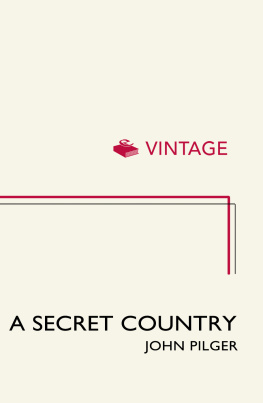
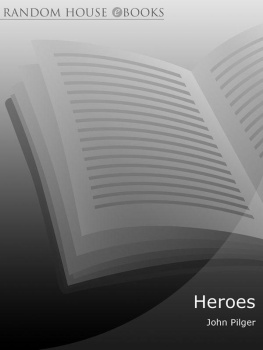
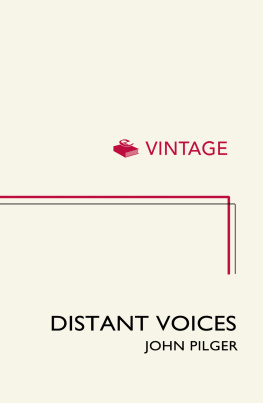
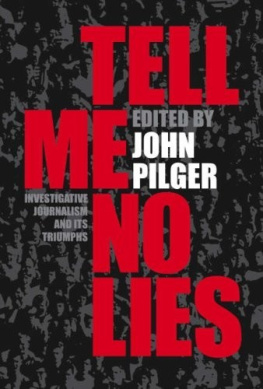
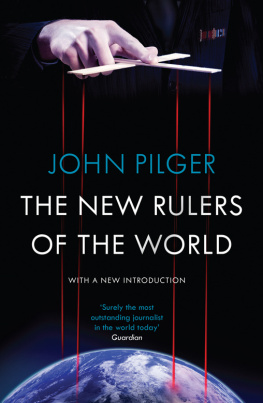
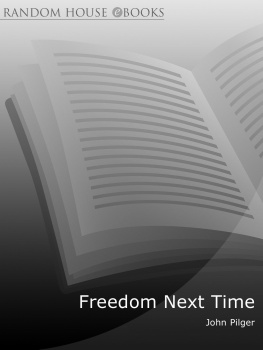
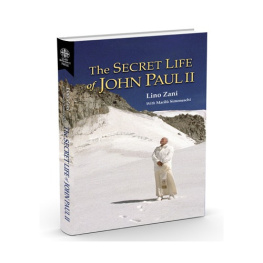
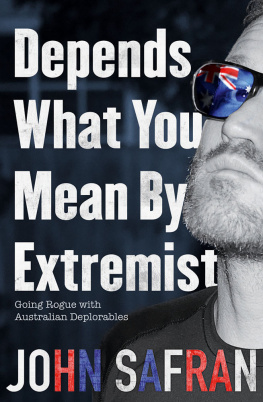
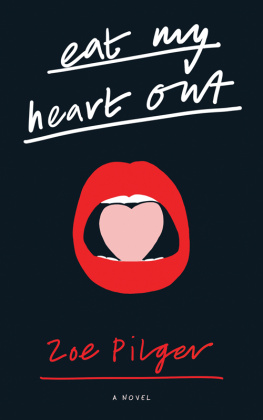
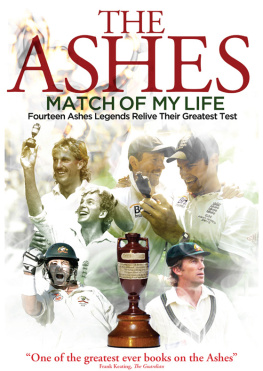

![John Pilger [John Pilger] - Hidden Agendas](/uploads/posts/book/142127/thumbs/john-pilger-john-pilger-hidden-agendas.jpg)